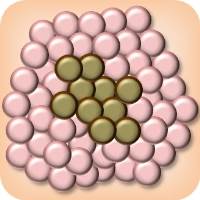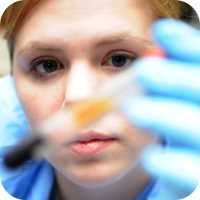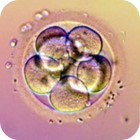How A Woman’s Fertility Can Be Affected by Cancer

Cancer that affects the reproductive organs can cause fertility problems, even when the cancer has completely gone. More often however, it is the treatment for cancer that can cause fertility problems rather than the cancer itself. And the cancer being treated does not necessarily need to be anywhere near the reproductive organs.
If you have cancer and are planning on having children in the future, there are options that may help preserve your fertility after cancer or allow you to have children that are genetically yours with a surrogate mother. For any of the treatments for cancer listed below, you should discuss your ambitions to have children with your doctor before undergoing any treatment. They will then be able to advise you on the best way to preserve your fertility after cancer according to your circumstances.
Cancer Surgery
Surgery may be part of treatment for cancer of the reproductive organs, or nearby organs. It may involve removal of the uterus (hysterectomy), and / or removal of the ovaries (oophorectomy).
Removal of the Uterus
The uterus is the medical term for your womb; if it is removed then there is nowhere for the baby to develop. While this will prevent you from becoming pregnant, it may be possible for you to use your eggs with a surrogate mother. Recently there have been medical tests on transplanting wombs, but that is not standard practice at the moment, though this may change in the future after trials: Womb Transplants Trials Granted Approval in UK. If you wish to support research into womb transplants, the link to the research charity is: Womb Transplant UK.
Removal of the Ovaries
If the ovaries are both removed, then there will be no eggs to be fertilized. However, depending on the type of cancer, the surgeon may be able to remove only one of the ovaries, thus potentially allowing for future pregnancies. If both ovaries need to be removed, it may be possible to have some eggs frozen for later use with assisted conception.
Cervical Cancer
In localised cervical cancers, it may be possible to remove the cervix only, and keep the main body of the uterus, again allowing for future pregnancies.
Blockages
Surgery may also cause surrounding scarring within the pelvis. This can cause damage to the fallopian tubes, and possibly block them, preventing the egg from meeting the sperm and fertilising. For more on the topic of surgery, please see the section Surgical Causes of Female Infertility.
Chemotherapy Treatment
Chemotherapy drugs are highly toxic medications which aim to destroy the cancerous cells. However, they also affect other cells of the body, especially the eggs within a woman’s ovaries. The extent of the damage done by cancer treatment depends upon the woman’s age, the individual drug and its dose.
Women who are under the age of 35 years when undergoing chemotherapy treatment are more likely to regain their fertility. Their periods may stop during treatment, but are more likely to restart after having stopped the chemotherapy for a while. However, this does not automatically mean that their fertility has returned.
Women who have had chemotherapy are also more at risk of undergoing an early menopause due to the reduced number of eggs remaining within the ovaries.
Women are advised not to get pregnant whilst having chemotherapy and for at least 6 months afterwards, as the treatment can have serious detrimental effects upon the developing baby.
Radiotherapy Treatment
This treatment involves the use of high energy waves of radiation directed at the cancerous cells. It is targeted at the area of cancer, but does also affect the surrounding tissues and organs to a certain extent. Therefore, radiotherapy treatment of the abdomen and pelvis can directly affect the reproductive organs, and radiotherapy to the head or neck, may damage the pituitary gland in the brain which is involved in the hormonal regulation of a woman’s cycle.
The extent to which radiotherapy treatment will affect a woman’s fertility again depends upon the location of the treatment and the dose that is given. If affecting the ovaries, it can result in damage to the eggs, and early menopause. Radiotherapy to the uterus, can cause scarring and impair the blood supply. This can cause problems with implantation of a fertilised egg, and possibly miscarriage as the uterus is unable to stretch sufficiently for the baby to develop.
Like chemotherapy, it advised to avoid getting pregnant whilst having radiotherapy treatment as the radiation can cause serious developmental problems to the baby.
Bone Marrow Transplantation
Bone marrow transplantation is a possible treatment for certain cancers and disorders of the blood. It involves replacement of the damaged bone marrow cells with healthy cells from a donor. This usually involves high dose chemotherapy or full body radiotherapy prior to treatment, and unfortunately usually causes permanent infertility.
Hormone Treatments
Hormone medications are sometimes given in the treatment of breast cancer, either initially to reduce the cancer, or later on in order to prevent recurrence. Due to the effects of these hormones, this can affect a woman’s normal cycle, certainly whilst taking, but maybe even after stopping.
If you are taking prescription medicine, make an appointment to review the medication with your doctor. There is a possibility that the medication may affect your fertility (never stop taking prescription medication without first having consulted your doctor).
What Are the Chances of Getting Cancer?
Thankfully the chances of women of reproductive age getting cancer are small. If you are unlucky enough to be one of the few women who do develop cancer while still young, then there are certain measures which can be taken prior to treatment in order to maximise your potential fertility after cancer treatment has finished. These include the possibility of egg collection and freezing, ovarian tissue removal and storage, surgery to try and protect fertility after cancer, and ovarian protection during radiotherapy. Your doctor will be able to discuss these with you and help choose the right option for you.
Treatment for Cancer Related Fertility Problems
This depends very much upon the underlying cause for the lack of fertility after cancer. If you have concerns about the possible impact of a previous cancer upon your fertility, then do discuss this further with your doctor who will be able to advise you on a more personal level.
Treatments which may be successful include ovulation induction and IVF. If you do not have sufficient eggs then egg donation, or surrogacy may be an option.
Cancer Associated Fertility Problems
If you have had cancer, you may also want to read the sections on the associated problems Surgical Causes of Female Infertility and Premature Ovarian Failure.
Links to Popular Related Pages








